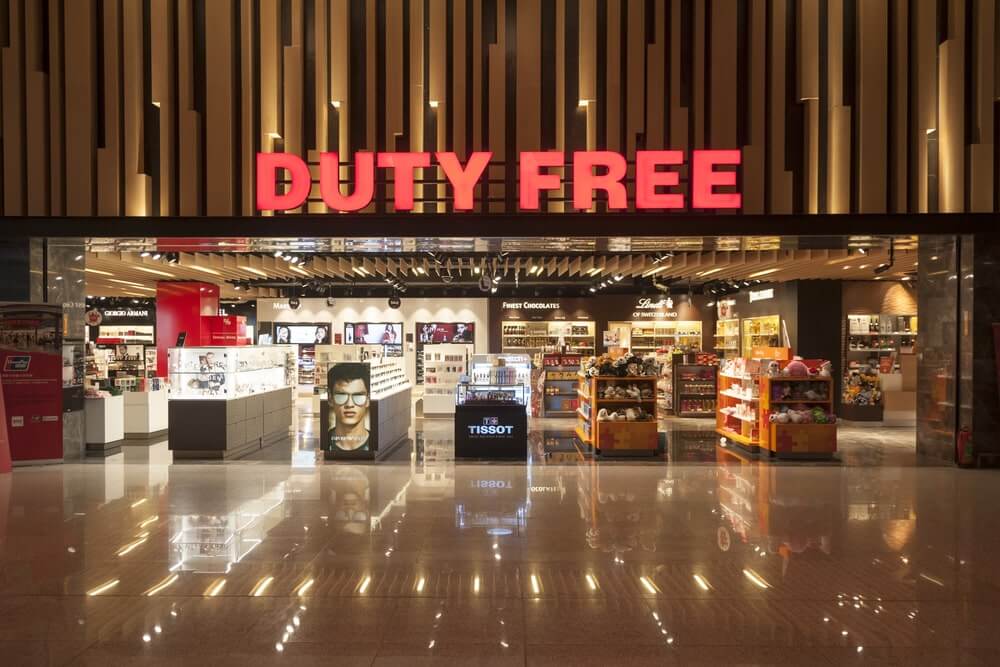
Duty-Free Meaning – How Does It Work?
Have you ever wondered how much time you spent waiting for a flight to the airport? Or how productively do you spend the “lost hours” that accompany travel? You’ve probably heard of Duty-Free shops at least once or seen them at the airport. Do you know their exact meaning and what to consider when entering such places? Let’s dive in.
Duty-Free is an action that allows you to purchase an item in a particular situation without paying sales, imports, value-added or other taxes. The attractive advantage of international travel is the Duty-Free Shops. These retail businesses sell goods that are exempt from all taxes because they are taken out of the country for use. Many popular duty-free items at airport stores include perfume, chocolate, and spirits.
Under normal circumstances, host countries will usually expect you to pay sales, imports, and VAT on your purchases. However, when shopping at international airports, cruise ships, seaport terminals, and international airlines, your purchase takes place on no-man’s land. This means that you are not in any particular host country or outside it. You are simply at the location of the terminal.
Duty-Free Shopping has changed in the E.U. Goods you buy while traveling between E.U. countries are payable or taxable. Products you buy while traveling in or within an E.U. country are subject to a refund. This means that the traveler must apply for a VAT refund. Customs-free shops often sell premium branded high-end branded goods, including cigars. They also sell high-class tourist items from the host country.
The ads boast that duty-free prices are 10% to 50% lower than domestic prices. Due to the demands of using the brand outside the host region, the duty-free place will pack your asset and deliver it to you as soon as you appear to leave.
Duty-Free Goods and Customs Duties
It is worth noting that duty-free goods in the host country may be taxed when you return to your home country. The duty-free regulations vary depending on the destination of your trip, the government of residence, and the length of your stay. Other rules apply to the land of manufacture, the cost of the product, and the items purchased.
For example, you will have to fill out a U.S. customs form to declare purchases made in the U.S. overseas. Receipts are crucial as they confirm how much you paid for the product. You will have to pay an additional fee if the value of the item you purchased exceeds the duty-free exemption for the country from which you are returning. Personal exceptions range from $200 to $1600. Additional regulations include waiting periods between frequent trips and restrictions on the length of travel abroad.
However, there are products that the quantity is still limited no matter in which country you buy them. For example, products such as cigarettes, alcohol in limited quantities are allowed. For instance, duty-free alcohol from the E.U., such as Scotch whiskey, has a one-liter limit. Likewise, travelers should be attentive that some products in other countries are illegal in the U.S.
How does the system work?
As a rule, clothes, cosmetics, perfumes are trendy. Sometimes you can find unique clothes or perfumes at attractive discounts; Other times they are cheaper in nearby stores. Cosmetic deals can be found on items that are generally not for sale. Sometimes, you can find unique gift kits containing unique combinations. As a rule, electronics and other technical purchases are unsuitable for duty-free shops. Online prices can compete with the duty-free price or even better.
However, items specific to the area you are leaving will be cheaper at a duty-free shop. However, caution is needed here as well. Remember, just because a duty-free shop can offer you low prices does not mean that it will necessarily be so. Duty-free stores may have high overheads that absorb potential savings to maintain storage space. You can plan duty-free Shopping from sources like dutyfreeaddict.com. This allows you to compare prices and see how much you are worth paying for a particular item.
Most importantly, do not forget about the exchange rate. If you buy in currencies other than the dollar, buying can be more or less expensive. Visiting Duty-Free shops is usually a favorite activity for many people due to the time spent at the airport. So, what are you waiting for? Wish you safe and happy Shopping.
-
Support
-
Platform
-
Spread
-
Trading Instrument




